Understanding Thyroid Nodules and Thyroid Disease
What are Thyroid Nodules? Thyroid nodules are abnormal lumps in your thyroid, a butterfly-shaped gland in your neck.
03 / 04 / 2024

What are Thyroid Nodules? Thyroid nodules are abnormal lumps in your thyroid, a butterfly-shaped gland in your neck. Many people, especially those aged 60 or older, have thyroid nodules, and the majority of them are not cancerous.

Causes of Thyroid Nodules
While past radiation treatment to the head, neck, and chest (especially during childhood) can increase the risk of thyroid nodules, the exact cause is unknown according to the American Thyroid Association.
Risk Factors
Certain factors, such as age, gender, and family history, may increase the likelihood of having thyroid nodules. Women and older individuals are more prone to developing one or more thyroid nodules.


Prevalence
By the age of 60, approximately half of all people may have a thyroid nodule that can be detected through examination or imaging. Thankfully, about 90% of these nodules are non-cancerous.
Types of Thyroid Nodules and Disease
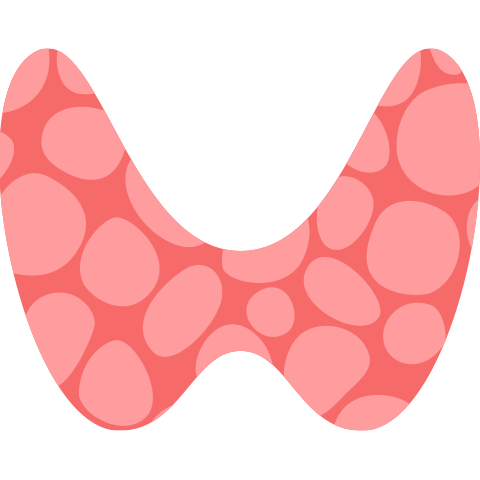
Healthy thyroid
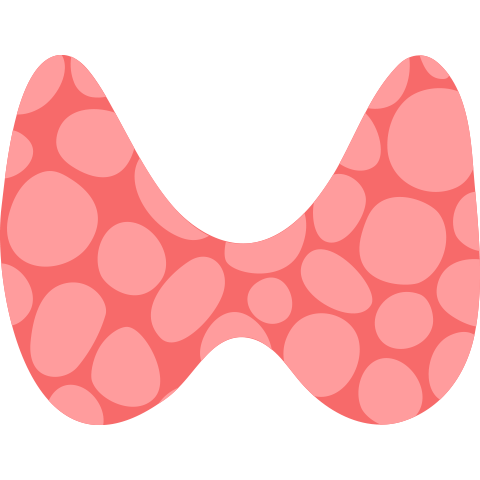
Goiter-irregular growth of thyroid
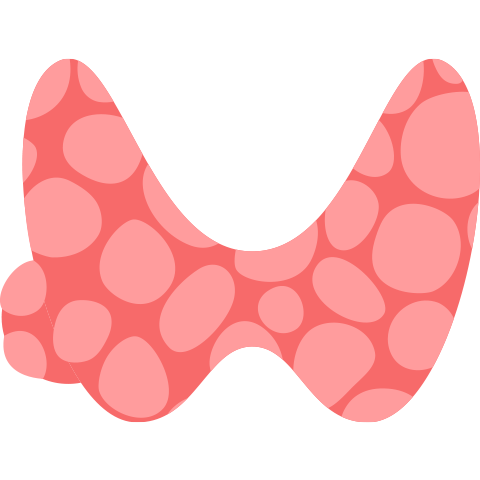
Thyroid with nodule – benign lump
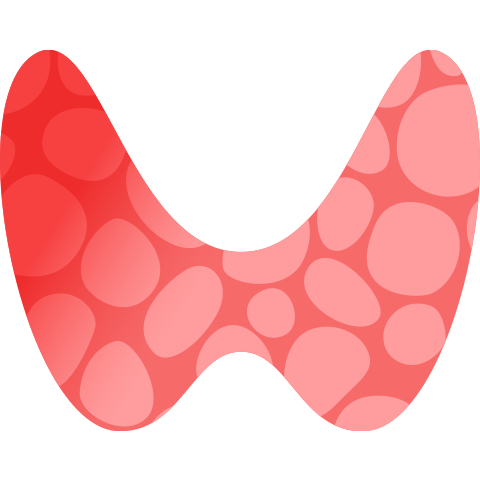
Thyroiditis – inflammation

Multinodular goiter

Thyroid cancer
Thyroid with Benign Nodule (Solid or Cyst)
These lumps can be solid or have fluid components and are caused by the unusual growth of thyroid cells. The majority of these nodules are not cancerous, which means they are benign.
Multinodular Goiter
The primary cause of a goiter worldwide is often attributed to insufficient iodine in the diet. When a goiter comprises multiple nodules, characterized by small rounded lumps or masses, it is termed a multinodular goiter. Your doctor will assess each nodule using ultrasound to determine if any necessitate a biopsy, aiming to test for the potential presence of cancer.
Hypothyroidism
An overactive thyroid, also known as hyperthyroidism or thyrotoxicosis, occurs when the thyroid gland produces an excessive amount of thyroid hormones. This condition is often associated with signs such as anxiety, irregular or unusally fast heart rate, and weight loss. It requires careful evaluation and management to maintain thyroid function within healthy levels.


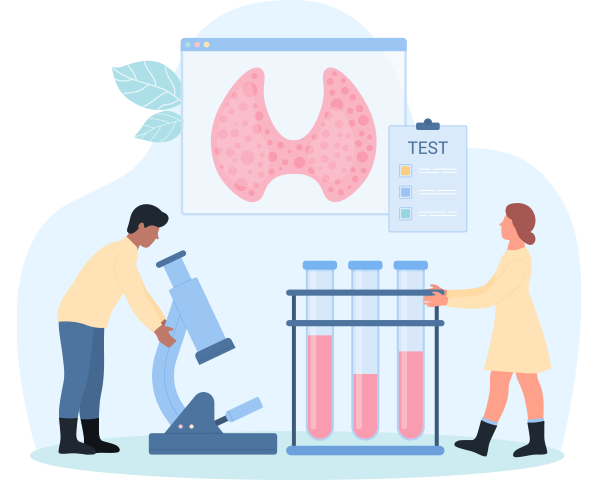
Thyroid Cancer
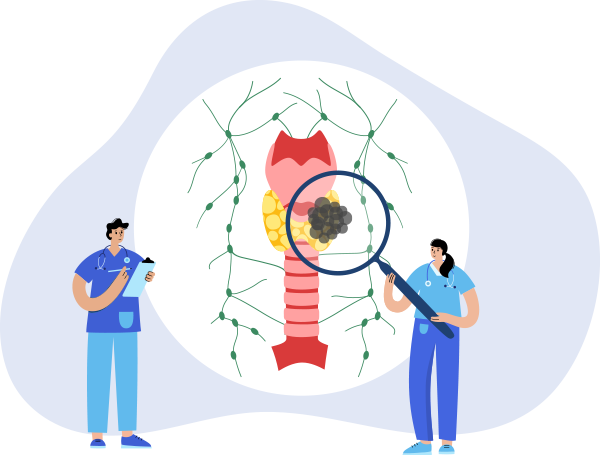
- 1. Papillary Thyroid Cancer
Described by the American Cancer Society as a slow-growing cancer typically found on one side of the thyroid lobe. - 2. Follicular Thyroid Cancer
The second most common type, often found in countries with insufficient dietary iodine. - 3. Medullary Thyroid Cancer
Less common, constituting around 4% of thyroid cancers. It can be more challenging to treat and may have a genetic component. - 4. Anaplastic Thyroid Cancer
Uncommon and known for its rapid spread, especially in individuals aged 60 or above. Survival rates are generally low, with an average of 6 months, and only 20% of patients survive beyond 12 months.